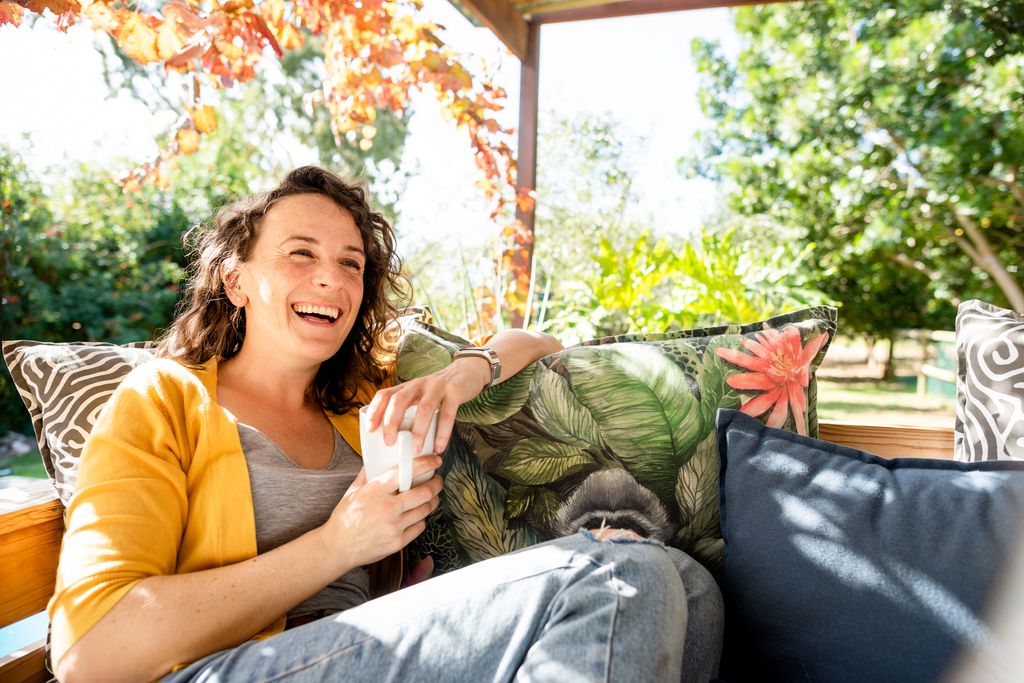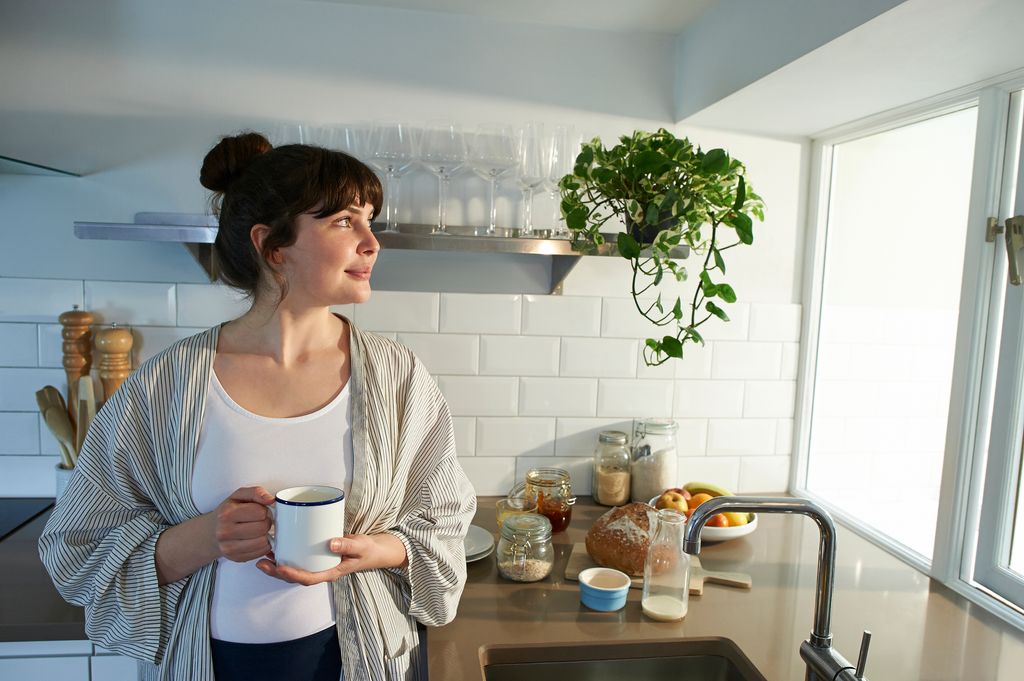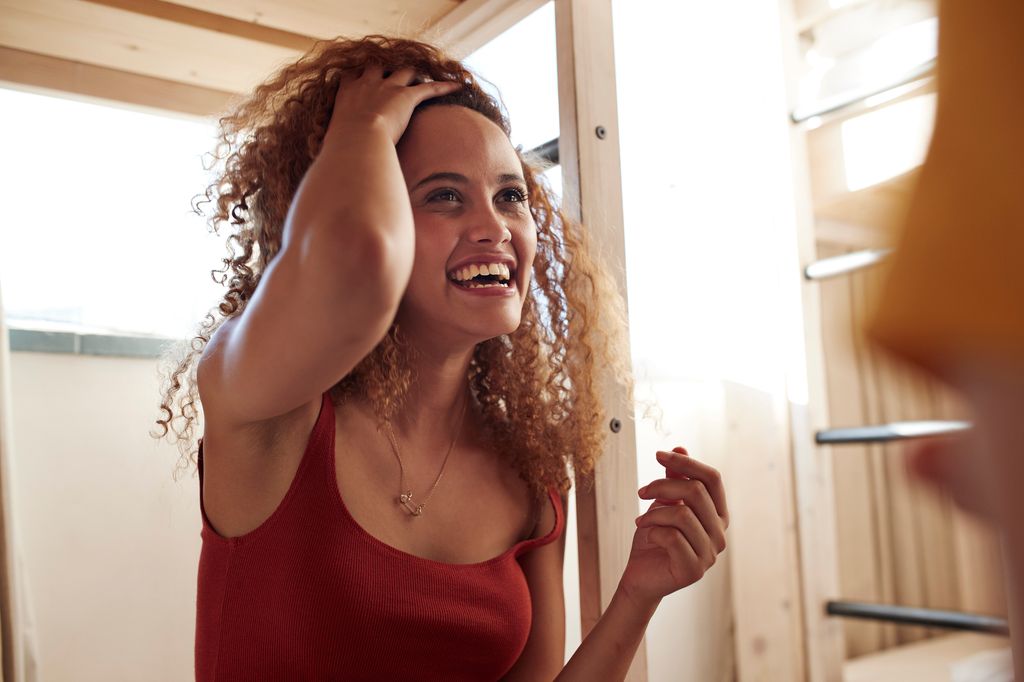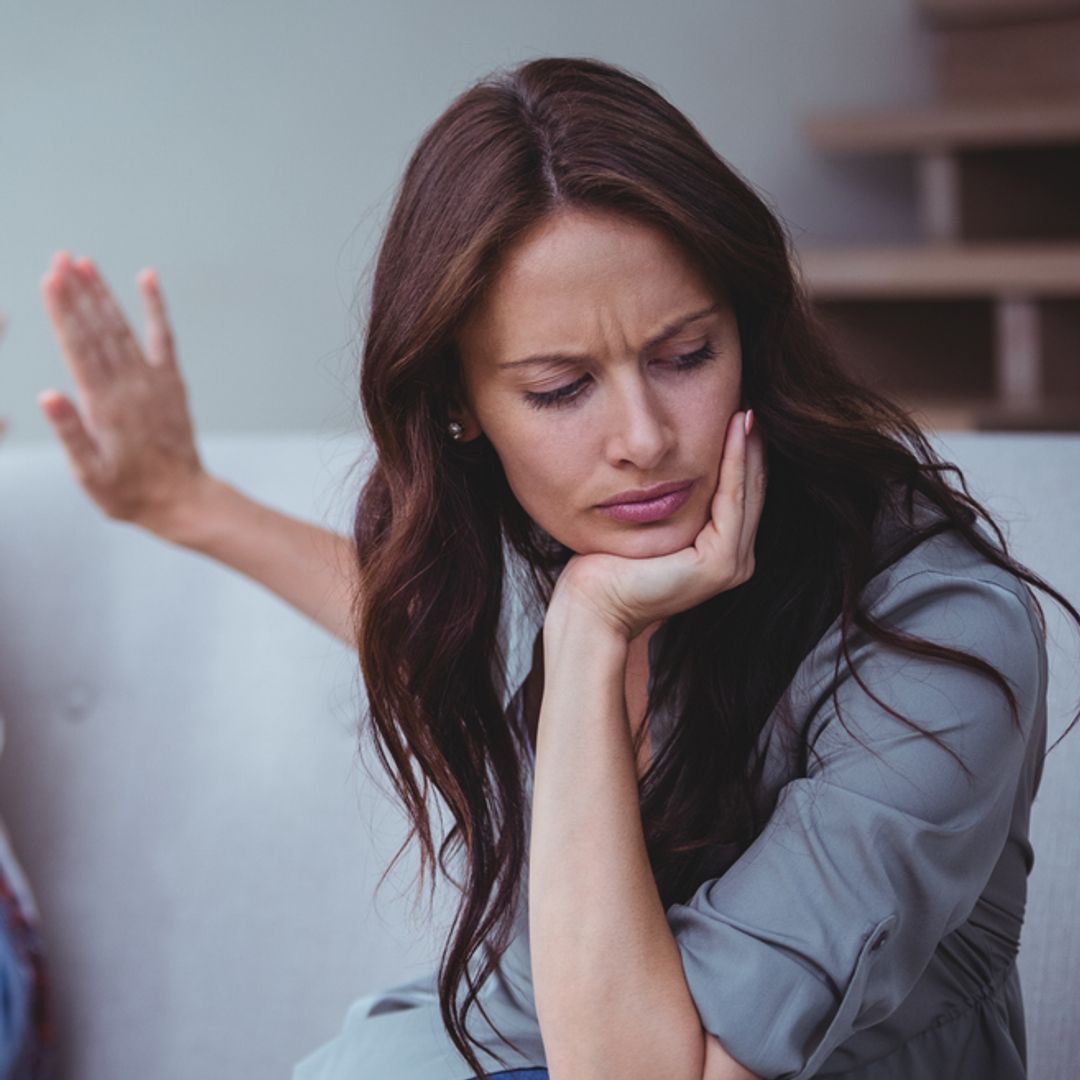What does your daily routine look like? Do you have a morning ritual you stick to each day or a bedtime routine that sets you up for sleepytime? Or maybe you schedule a daily desk break or make sure me-time is part of your day-to-day routine.
If you stick to your routine, you likely see the positive benefits. New research by David Lloyd Clubs shows that half of the people who stick to their routine say they feel better organised as well as less stressed and anxious.
On the flipside, 49% of people say they feel stressed and irritated when their routine is disrupted.
That said, the research also showed that a quarter of us recognise we're bad at sticking to a routine. And with busy lives, it's totally understandable that we can't stick to routines all the time.
That said, experts confirm that routines are key to keeping us happy. So, in our quest to help our readers live happier lives, we spoke to psychotherapists and life coaches to get to the bottom of why routines are so helpful.
Why do routines make us happy?
Psychotherapist Lauren Baird explains that routines help us achieve balance in our lives, creating the perfect combination of work, rest, sleep and play that we need to feel content and happy.
"When you are more intentional with your routine, it helps you focus on what is important," she says. "Routines help us make time to cultivate the things that bring us joy and a sense of wellbeing. Without a routine, life can begin to feel out of control and chaotic.
"When we have a good routine, it means we are bringing down our stress levels as we are focusing on things such as ensuring we get enough sleep and eating well," Lauren continues.
"We live in a very busy world that promotes productivity, it's important to unhook from this 'do more' messaging," she adds. Read on for all the reasons routines make us happy…
1. Routines are predictable
"Routines introduce a predictability to life which is particularly helpful when things are chaotic," says transformation coach Mhairi Todd. "Just as babies can benefit from a predictable wind-down and bedtime routine, so can adults!"
DISCOVER: Does smiling make you happy? An expert explains
2. Routines eliminate decision fatigue
If you struggle to make decisions, a routine can be hugely helpful, according to Mhairi. "Routines remove the need for lots of decision-making. If you know Saturday morning is when you go for a run, then you don't spend the week searching for a gap to fit it in," she says.
3. Routines help you live your best life
"Routines can help you live life the way you want to," says Mhairi. "Doing the food shop on a Sunday night for example might set you up for a week of nutritious dinners. Whereas, if you are anything like me, shopping as and when might result in less considered choices (did somebody say takeaway?)."
4. Routines can ease anxiety
"Setting up an effective routine can be extremely beneficial for those suffering from anxiety," confirms clinical psychologist Dr. Sophie Mort of Headspace. "They can offer a sequence of actions that foster a sense of control and predictability."
DISCOVER: The totally free way to ease anxiety, panic attacks and insomnia
5. Routines can help us switch off
"If you find yourself struggling to detach yourself from the pressures of work after a busy day, using a routine of transitional markers can help you recognise a time to shift," says Dr. Sophie Mort.
"Some examples include changing clothes, putting on slippers, washing or splashing your face with water, or lighting a candle or incense."
6. Routines help us make me-time
Me-time is essential for happiness, but if you've got a busy work or family life, finding time for yourself can certainly be a struggle – but routines can help with this, according to Dr. Sophie.
"By setting up a daily routine, we can map out how our time outside our work commitments is distributed, ultimately carving out time for the things that bring us most enjoyment - be it spending time with loved ones, working out, catching up on our favourite shows or engaging in self-care."
7. Routines help us take control of our lives
"Routines help us reduce our stress levels so we can take control of our lives and focus on what truly matters to us," says Lauren.
"For example, we might prioritise our sleep and create a bedtime routine where we go to bed at the same time each night and have no screen time for 30 minutes before bed.
"Doing this might mean we see a lift in mood, are better able to manage our emotions and have more headspace to connect to our goals and values."
8. A morning routine can help us stress less
"In the morning, we tend to release the highest amount of cortisol in our day - and so having a solid morning routine helps you manage your stress in a more adaptive manner," says Lauren.
"This might be starting the day with breakfast and a comforting drink, moving in a way that feels good for you, ensuring you have time for a shower and so on. This helps you feel set up for the day ahead."
So now we know the importance of a routine, how do we stick to it?
READ: How a 10-day digital detox totally changed my life
How to stick to a routine
1. Work out why you want a routine
"One of the main things that stops us from keeping going with routines is that we are not entirely sure why we are doing it and cannot see how it will really help us in the long run or we are doing it because we think we should," says Dr. Sophie Mort.
"Work out why you want to follow your routine, who you will be in the future if you do manage to stick to it and what the true pros and cons of starting or not starting this routine are. We only truly start behaviours that we believe in."
2. Start small
"Start small and allow yourself to get consistent with that first," says Mhairi. "You might want to go to the gym five times a week, but if you are starting from zero visits in the last year then it's less likely this marked change will stick.
"Start with once or twice a week, make it predictable, such as planning to always go on the same day at the same time get consistency there. Then add in more when you are ready."
Lauren agrees, adding: "Try to avoid setting lots of big goals, as this can lead to us feeling overwhelmed and avoiding making the changes entirely. Set yourself smaller goals that you feel you can manage (even on a bad day)."
3. Make it almost impossible to avoid your routine.
Dr. Sophie Mort advises setting yourself up for success to ensure you follow your routine.
"For instance, if you want to use your mornings to exercise, laying out your gym kit so it's the first thing you see when you wake up can help keep you accountable," she says.
"Seeing your gym kit is a reminder of the goals you set your mind to achieve. Or if you like to meditate in the morning, set up your meditation space before bed, placing it between the bed and wherever you go to brush your teeth will mean it is ready for you to jump straight in as soon as you wake up."
READ: I totally changed my life in 30 days - here’s how
4. Choose the right time of day for your routine
"Choose the time of the day where your brain chemistry is most adept," encourages Dr. Sophie Mort. "Your brain chemistry is set to do the things you least want to do in the first eight hours after waking.
"In an ideal world, try to put your new routines in here. Place any relaxing activities or activities that are already easy to complete in the second eight hours where your brain chemistry is set up for relaxation."
5. Be consistent with your routine
"Consistency is key," says Lauren. "When we repeatedly do something, it creates a new habit. This allows your brain to hardwire this experience, which over time will become the default path. If you forget or don't make your goal, try not to criticise yourself, instead just come back to the routine shift the next day.
"Remember good enough, is good enough - let's not strive for perfection. Offer yourself flexibility in your routine and avoid making it stressful as another thing on your to-do list."
David Lloyd Clubs is encouraging the nation to re-establish their September routines to promote happiness and overall wellness














